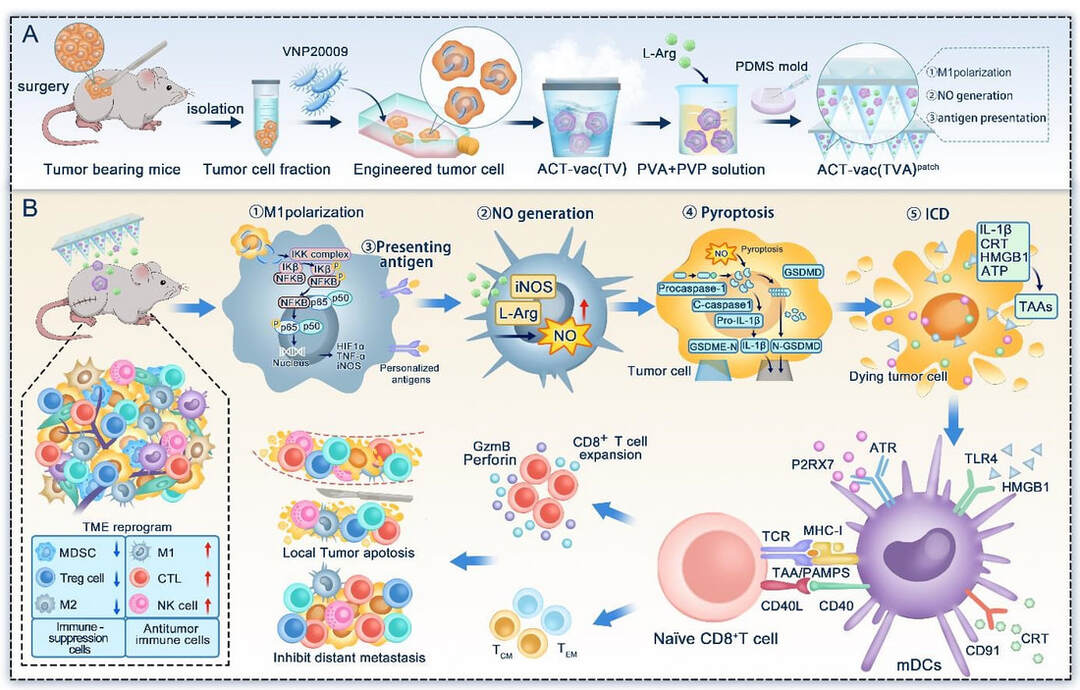
Abstract:
Incomplete surgical resection of solid tumors frequently leads to recurrence and metastasis, driving cancer mortality. While adoptive cell transfer (ACT) of tumor-infiltrating lymphocytes (TILs) shows promise in preventing recurrence, its clinical adoption is hindered by lengthy manufacturing times and variable efficacy. Here, this work presents ACT-vac, a rapidly producible personalized cancer vaccine that combines bacterially transfected autologous tumor cells with L-arginine-mediated nitric oxide (NO) generation to combat postsurgical tumor recurrence and metastasis. This approach drives three synergistic mechanisms: (1) amplification of tumor-specific antigen presentation; (2) reprogramming of tumor-associated macrophages (TAMs) from an immune-suppressive M2 to an immunogenic M1 phenotype via NF-κB pathway activation; and (3) NO-triggered tumor cell pyroptosis that releases additional immunogenic signals. When delivered via dissolving microneedle patches to a murine model of incompletely resected melanoma, ACT-vac elicits marked suppression in tumor recurrence and metastasis. Notably, unlike traditional ACT therapies requiring 6–8 weeks of cell expansion, ACT-vac can be produced within 72 h post-resection. This rapid, personalized approach initiates a self-amplifying immunologic cascade via macrophage-centric immune remodeling, positioning it as a transformative strategy for preventing post-surgical tumor recurrence and metastasis.